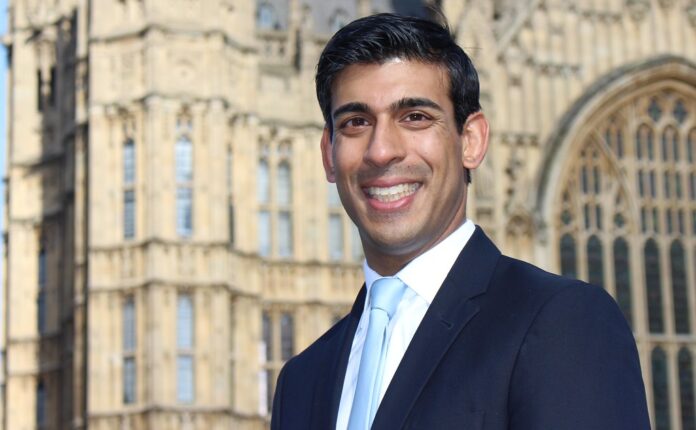![]()
The United Kingdom’s Conservative Party has been in power since 2010, and now, in its twelfth year of leadership, is on its third Prime Minister in three months. Rishi Sunak recently replaced Liz Truss, who had herself replaced Boris Johnson in early September. In the summer of 2022, a series of scandals emerged centering around flagrant violations of COVID-19 lockdown rules at 10 Downing Street by Mr. Johnson. In the wake of criminal investigations and falling approval ratings, Johnson stepped down, succeeded by Truss. Truss, in turn, stepped down last week on October 20th, after just 45 days in office. Her tenure as Prime Minister holds the record for the shortest in British history. The saga of her rise to power and the disastrous 45 days which led to her fall from grace are a warning to Truss’ successor, and to her party, on their prospects for future success.
Although it has held power since 2010 and won the popular vote most recently in the 2019 general election, the Conservatives needed a strong leader to maintain their attractiveness to British citizens following the implosion of Boris Johnson’s government this summer. In keeping with the rules of the United Kingdom’s parliamentary system, the contest to replace Mr. Johnson was not held via a general election but as a contest between existing Conservative Members of Parliament (MPs). Conservative MPs chose two candidates from among their ranks, who were then put to an election by non-parliamentary dues-paying members of the Conservative Party. Critics have lambasted this as anti-democratic, due to the party’s demographics— they comprise less than one percent of the UK by numbers. The New York Times, for instance, argues that this system hinders representation because party members are disproportionately older, white British, and male versus the general population. The Conservatives’ election pitted Liz Truss, Johnson’s foreign secretary, against Rishi Sunak, formerly Johnson’s Chancellor of the Exchequer equivalent to the post of finance minister. Truss won out, defeating Mr. Sunak by a slim margin.
Truss entered office on September 6, at a time of great economic uncertainty. She faced a rising cost-of-living and inflation crisis exacerbated by the war in Ukraine, which is squeezing consumers in Europe and elsewhere this winter. Truss began her term with an ambitious neoliberal economic agenda. “Trussonomics” would revitalize the British economy through slashing taxes and deregulating the market, hearkening back to the fiscal conservatism of Margaret Thatcher, Britain’s “Iron Lady.” Later in September, Truss along with her close political ally and new Chancellor of the Exchequer, Kwasi Kwarteng, announced a “mini-budget,” centered around a major tax cut aimed towards the ultra-rich. Earners in the UK who make more than £150,000 would have received a 5% tax cut. This mini-budget was expected to force the government to take on £70 billion in new debt in the next year, according to the Economist. Panic in the financial sector at these expensive, unfunded tax cuts ensued, and the value of the British pound dropped precipitously in global markets.
Overwhelmingly negative responses from all corners forced Truss to make a U-turn on her economic policy; she fired Kwarteng on October 14 and announced a substantial overhaul of the mini budget. Though Truss insisted she would lead her party through the next election, her reckless budget and abrupt reversal became her undoing. Ms. Truss’s inability to fulfill the economic promises and policies which had carried her into office, as well as her subsequent refusal to acknowledge her mistakes, made her colleagues lose faith in her ability to lead effectively. After announcing her about-face, chaos erupted in British politics, and Conservative Members of Parliament began to openly call for Truss’s resignation. The week’s events made a Conservative mutiny imminent and unavoidable.
On October 20, 2022, 45 days into her premiership, Truss was forced to resign. She faced a fractured party and a whopping 80 percent disapproval rating. Truss’ resignation sparked another leadership competition, which quickly ended on October 25 with the victory of her one-time opponent Rishi Sunak. Sunak is the first ever person of color to be the British Prime Minister, and the first Hindu. He and his wife have amassed a combined fortune of 730 million pounds, leading many to speculate that he is too far away from the struggles of everyday life to effectively address current problems centering on the cost of living. Sunak, for example, once bragged that he had no “working-class” friends.
Sunak takes office amid the same economic crisis Truss faced, but exacerbated by her inconsistent leadership. Perhaps his most important job, at least to colleagues and fellow party members, is unifying a Conservative Party which is far more divided and less trusted than it has been in years. Although Sunak’s ascension is a first in some ways, it remains to be seen whether he can rise to the challenge of his tremendous task. Turbulent leadership at the end of Boris Johnson’s tenure and through Truss’ administration means the Conservatives are in a highly vulnerable position, which might offer a window to their opponents. If Sunak fails, he may lose the Conservative Party’s last chance to solidify its slipping grasp on power.












